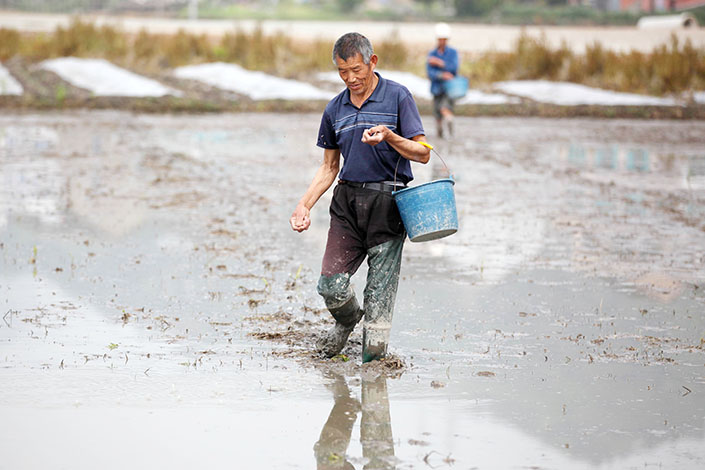China Unveils $55.2 Billion in Tax Cuts to Boost Growth

(Beijing) — China has unveiled plans to ease the tax burden on companies and consumers by more than 380 billion yuan ($55.2 billion) this year to boost economic growth.
As of July 1, the government will streamline the value-added tax (VAT) structure, reducing the number of brackets from four to three, and reduce the VAT on agricultural products and natural gas from 13% to 11%, according to a statement released after a Wednesday meeting of the State Council, China’s cabinet, presided over by Premier Li Keqiang.
“Deepening the tax system reform and stepping up tax cuts can … optimize the business environment, increase corporate activity and innovation, consolidate the stabilizing and improving momentum in the economy, and promote structural upgrading,” the statement said.
Small companies with annual taxable earnings of 500,000 yuan or less will enjoy a discounted corporate income tax rate of 20%, compared with a standard rate of 25%, on half that amount for three years until the end of 2019, it said. The ceiling is currently set at 300,000 yuan.
Tax breaks will also be granted to startups and small and midsize companies in the technology sector. In addition, a number of other incentives that expired at the end of last year will be extended until the end of 2019, such as a 50% tax reduction on land used for warehousing by logistics companies.
Also, individuals nationwide will be allowed to spend up to 2,400 yuan a year exempt from personal income tax on commercial insurance products, according to the statement.
These measures, combined with last year’s business tax overhaul, will see tax payments on Chinese companies and individuals lowered by more than 380 billion yuan this year, it said.
The government has touted the business tax to VAT reform as playing an important role in easing the tax burden on companies. The program was expanded in May to include the construction, real estate, consumer and financial sectors, which meant some companies paid less tax in the first four month of this year than they did in the same period last year
The statement added that other policies published in the first quarter of the year will trim nontax government charges by 200 billion yuan.
“We believe that these further tax-cut measures will enhance the sustainability of economic recovery, especially private-sector growth,” economists with investment bank China International Capital Corp. Ltd. said in a research note.
The Chinese economy expanded by 6.9% in the first three months of the year, after an increase of 6.8% in the fourth quarter of 2016 marked the first uptick in two years. But analysts have warned of downward pressures in the rest of the year even though the first quarter growth exceeded the government’s full-year target of about 6.5%.
Wednesday’s announcement followed Li’s promise made last month in his Report on the Work of the Government to slash 350 billion yuan in taxes and 200 billion yuan in administrative fees.
China’s high tax levels and various other government charges, sometimes imposed in a discretionary and opaque manner, have drawn complaints from business owners who have seen profits squeezed as the country’s economic growth has slowed.
In one high-profile case, Cao Dewang, chairman of auto glass manufacturer Fuyao Glass Industry Group Co. Ltd., in March cited the heavy corporate tax burden in China in defense of his plan to invest $1 billion to build manufacturing bases and other facilities in the U.S.
The World Economic Forum estimated the total tax burden on businesses in China at 67.8% of profits, one of the heftiest among all the 138 economies it rated in a competitiveness report released in September.
Contract reporter Fran Wang (fangwang@caixin.com)

- 1Cover Story: China Carves Out a Narrow Path for Offshore Asset Tokenization
- 2Drownings Shake Chinese Enthusiasm for Travel to Russia
- 3Over Half of China’s Provinces Cut Revenue Targets
- 4Li Ka-Shing’s Port Empire Hit by Forced Takeover Amid Panama Legal Dispute
- 5In Depth: China’s Mutual Fund Industry Faces Overhaul After a Banner 2025
- 1Power To The People: Pintec Serves A Booming Consumer Class
- 2Largest hotel group in Europe accepts UnionPay
- 3UnionPay mobile QuickPass debuts in Hong Kong
- 4UnionPay International launches premium catering privilege U Dining Collection
- 5UnionPay International’s U Plan has covered over 1600 stores overseas



